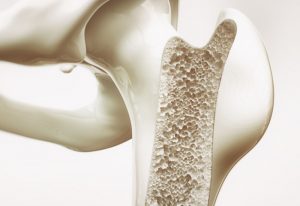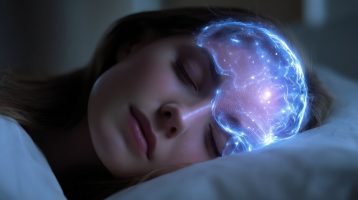Many people suffer from insomnia and other sleep disorders. This can lead to a greater risk for a variety of diseases, from heart disease to different kinds of cancer. Although sleep is important when we are young, it becomes even more important as we age. According to a new study, lack of sleep can also contribute to failing bone health, including a serious bone disease known as osteoporosis.
Osteoporosis: The Danger of Weak Bones
 Old age brings with it several risks. As people age, they have a higher risk of cancer and heart disease as well as a higher chance of dying from common illnesses such as influenza. Although we do not hear as much about it, osteoporosis, or thinning of the bones, is also one of the significant risks of old age.
Old age brings with it several risks. As people age, they have a higher risk of cancer and heart disease as well as a higher chance of dying from common illnesses such as influenza. Although we do not hear as much about it, osteoporosis, or thinning of the bones, is also one of the significant risks of old age.
People with osteoporosis have bones that have thinned to the point where they have developed pores in them — weak spots that can break with even the slightest stress. Osteoporotic bones deteriorate to the point where they can no longer withstand the stresses of daily life. People who have this disease may break a bone not just from a fall, but from leaning against a piece of furniture or even from sneezing.
There are several risk factors for osteoporosis. Age and female gender are two of the most significant. In addition, being inactive can increase your chances of developing this disease. According to a new study, not getting enough sleep may also be a risk factor for this feared disease.
Could Sleep Affect Bone Production?
When we sleep, our bodies do more than just rest. A variety of metabolic and regenerative processes occur while we are deep in dreams. Bone remodeling is one of these nighttime processes. Although we think of our bones as remaining constantly the same, we are actually continuously remodeling them. As our bones break down, our body fixes the worn areas with collagen and cartilage which is then solidified with minerals such as calcium.
To study the effect of sleep on bone mineralization, research looked at the sleep habits of a large group of women. They also measured the bone mineral density of these women. When they compared the numbers, they found that women who slept less than five hours a night had less bone mineral density. In fact, their bones were far “older,” more brittle and prone to fractures, than people who got more sleep every night.
How Lack of Sleep Harms Bone Health
How can sleep have such a huge impact on bone health? The role of melatonin in the remodeling of connective tissues such as bone likely plays a role. Melatonin is actually one of the main hormones governing bone rebuilding and mineralization. In addition, it functions as an antioxidant, a compound that can reduce damage to bones from free radicals and other destructive elements that we encounter throughout our day. As a result, decreased melatonin levels have been linked repeatedly to more fragile bones and less efficient healing from fractures and surgeries.
It is clear that short sleep intervals can lower bone density, however, the extent of the impact is surprising. In addition, this information raises concern for elderly people who do not sleep for long periods at a time, which happens to be a large group. It may be time to take the sleep of our elders more seriously, as it can have a serious impact on their long-term health and well-being.
Tips for Strong Bones

- Eat a diet rich in minerals such as calcium, iron, zinc and magnesium.
- Exercise on a daily basis, including weight-bearing exercise.
- Avoid substances like alcohol and tobacco, both of which have been linked to lower bone density.
- Maintain a healthy body weight.
- Talk to your doctor about osteoporosis screening, as this disease can often be identified early and treated effectively before it causes fractures.
In addition, be sure that you get enough sleep, even if it requires taking a melatonin supplement every night. These supplements are completely safe and natural. Because melatonin levels have been found to impact bone growth, taking a simple supplement may be one of the most important things you can do to maintain strong bones for a lifetime.
Sleep is one of the most important factors in your health. If you are not getting the sleep you need, it may be time to make changes that allow you the right quality and quantity of rest every night. Maintaining healthy melatonin levels and getting enough sleep are essential to every aspect of your health, including your bone health.







